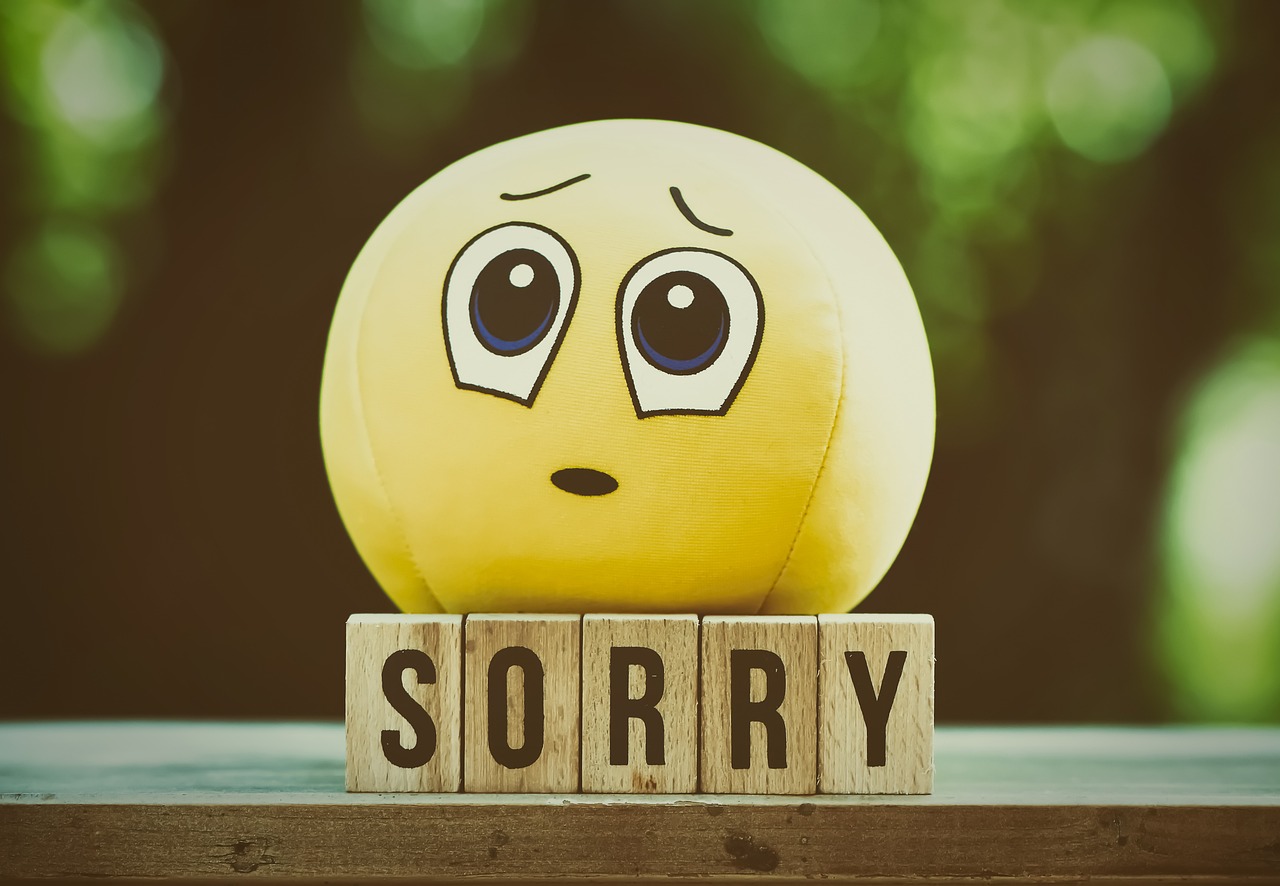Avoid These 10 Relationship-Ending Bad Habits & Practice These 10 Healthy Ones
If you're in a relationship, there are a couple of important habits you should be aware. We're talking, bad relationship-ending ones you should be careful about, and healthy ones you should really be practicing. After all, relationships aren't just a walk in the park - they require plenty of effort and care from both parties if you want it to succeed.
1. Lack of Communication
Good communication is the foundation of any healthy relationship. Failing to communicate effectively is what leads to misunderstandings, resentment, and unnecessary disputes. Don't let emotions like anger or hurt get in the way of you openly sharing your feelings, expectations, and concerns.
 Image by Mircea Iancu from Pixabay
Image by Mircea Iancu from Pixabay
2. Taking Your Partner for Granted
The longer you've been with your partner, the more likely it is that you forget to cherish them. Because over time, it's easy to become complacent! Never forget to appreciate the little things your partner does for you; ignoring them or forgetting to thank them is one way to make them feel undervalued and neglected.
 Photo by Priscilla Du Preez 🇨🇦 on Unsplash
Photo by Priscilla Du Preez 🇨🇦 on Unsplash
3. Constant Criticism
Constructive feedback is healthy and can be an important way to keep your relationship on the right path, but constant criticism is an entirely different beast. It can not only damage your partner's self-esteem, but ruin trust within the relationship. Concerns should be expressed in a supportive way and should never feel targeted or offensive.
 Photo by Charlie Foster on Unsplash
Photo by Charlie Foster on Unsplash
4. Jealousy and Possessiveness
Often stemming from insecurity, jealousy and possessiveness are two negative traits that can lead to a controlling behaviour. Badly affecting the trust and respect built in the relationship, it's one bad habit that might just lead to the dreaded end.
 Image by StockSnap from Pixabay
Image by StockSnap from Pixabay
5. Ignoring Boundaries
Disrespecting your partner's personal boundaries is a surefire way to cause significant strain on the relationship. Listen, everyone needs their own space and privacy, even if you've been together for years and years! Respecting your partner as their own individual is what helps strengthen the bond.
 Image by Trương Hoàng Huy Ngân from Pixabay
Image by Trương Hoàng Huy Ngân from Pixabay
6. Financial Irresponsibility
Money can't buy you happiness, but it sure can help with a lot of things. For one, money problems can be a common reason for relationship stress. If you or your partner is being irresponsible with finances (especially if you have a shared account), it'll only cause strain and conflict.
7. Lack of Compromise
Relationships are all about give and take, so if one side always refuses to compromise, nothing is ever getting anywhere. The only things that'll come out of your arguments are resentment and frustration! After all, a partner that isn't willing to compromise might not be one worth staying with.
 Image by 👀 Mabel Amber, who will one day from Pixabay
Image by 👀 Mabel Amber, who will one day from Pixabay
8. Bringing Up Past Arguments
Leave what's in the past, in the past! Constantly bringing up previous arguments simply means it was never resolved. It's a bad habit making your partner believe you're fine with something until one day, they realize it was all a lie. It's more important to solve issues together as they come along, making sure everyone reaches a happy conclusion. Because if you don't - you best believe they'll use it as ammunition in the future.
 Image by Mohamed Hassan from Pixabay
Image by Mohamed Hassan from Pixabay
9. Ignoring Your Partner's Needs
What you want and need versus what your partner wants and needs might not always be the same. It's important that you pay attention to the differences, catering to them so that they can feel loved and wanted. Because if you don't give them that respect, it's an easy way to make them feel invisible.
 Image by Sasin Tipchai from Pixabay
Image by Sasin Tipchai from Pixabay
10. Lying or Withholding Information
If you're having to lie in your relationship, it simply means there's no trust or comfortable space there. Your partner should be the one person you feel most connected to; if you're unable to speak honestly, something clearly isn't working out.
1. Prioritize Each Other's Happiness
You should always be prioritizing your partner's wellbeing and happiness. Of course, it doesn't mean ever doing anything that would sacrifice your own state of being, but it's about finding joy together and actively showing them that you care.
 Photo by Chermiti Mohamed on Unsplash
Photo by Chermiti Mohamed on Unsplash
2. Regular Check-ins
Regularly checking in with your partner is a great habit to practice. It shows that not only do you make active decisions to set aside time for them, but you care about their emotional and mental states. Understanding their current stresses or joys is one step to better understanding your partner.
 Photo by Anna Selle on Unsplash
Photo by Anna Selle on Unsplash
3. Support Personal Growth
Just because you're a couple doesn't mean you can't grow on your own! Encouraging and supporting each other's personal gains and growth is the sign of a healthy relationship. It shows them you'll always be there for them, even during their failures or setbacks, ensuring that they'll always have a shoulder to lean on.
 Photo by Giorgio Trovato on Unsplash
Photo by Giorgio Trovato on Unsplash
4. Practice Forgiveness
Forgiveness is more important in a relationship than you might realize. Letting go of minor grievances, not holding grudges or resentment, and moving forward is surprisingly harder than you might think. If you let it get to you, it'll just poison the relationship. That's why addressing issues, acknowledging mistakes, forgiving, and moving on are so important and healthy to practice.
5. Mutual Respect
Always show your partner respect! This goes for any and all interactions, from listening to their perspectives, valuing their contributions, and treating them with kindness at all times. If you've ever heard the saying, "Treat others the way you want to be treated," that goes tenfold in a relationship.
 Photo by Becca Tapert on Unsplash
Photo by Becca Tapert on Unsplash
6. Physical Affection
Hugs, kisses, and cuddling might just seem like things you do while dating, but don't undermine their importance! Regular physical affection is a simple way to let your partner know you love them. It makes your emotional connection stronger when you're able to constantly express love and reassurance.
 Photo by Priscilla Du Preez 🇨🇦 on Unsplash
Photo by Priscilla Du Preez 🇨🇦 on Unsplash
7. Honesty
Being open and honest is the key to building trust in any relationship. Sharing your thoughts, feelings, and concerns honestly are good habits to adopt, especially if you want to prevent any misunderstandings. Having that kind of relationship can really open your eyes to what it feels like to be truly comfortable with someone.
 Photo by bruce mars on Unsplash
Photo by bruce mars on Unsplash
8. Maintain Independence
Being in a committed relationship doesn't mean you should lose your sense of self - if anything, it should enhance it! Pursue newfound hobbies and interests on your own while giving your partner space to do the same too. Who knows, you both might just bring new energies, perspectives, and experiences to the relationship that'll make it stronger.
 Photo by Mohamed Nohassi on Unsplash
Photo by Mohamed Nohassi on Unsplash
9. Shared Goals and Values
If you're in a long-term relationship, it's ideal that you start working together to identify shared goals and future plans. These can help guide your relationship in the direction you both want it to be headed. From financial decisions to lifestyle choices to family planning, everything's fair game!
 Photo by Jonathan Borba on Unsplash
Photo by Jonathan Borba on Unsplash
10. Conflict Resolution Skills
There's no such thing as a perfect relationship. You're going to experience disagreements and fights with your partner and that's normal! What matters is how you deal with it. Learn how to approach conflict in a respectful, calm manner, with the goal always being to resolve the fight in a way that works for both parties.











